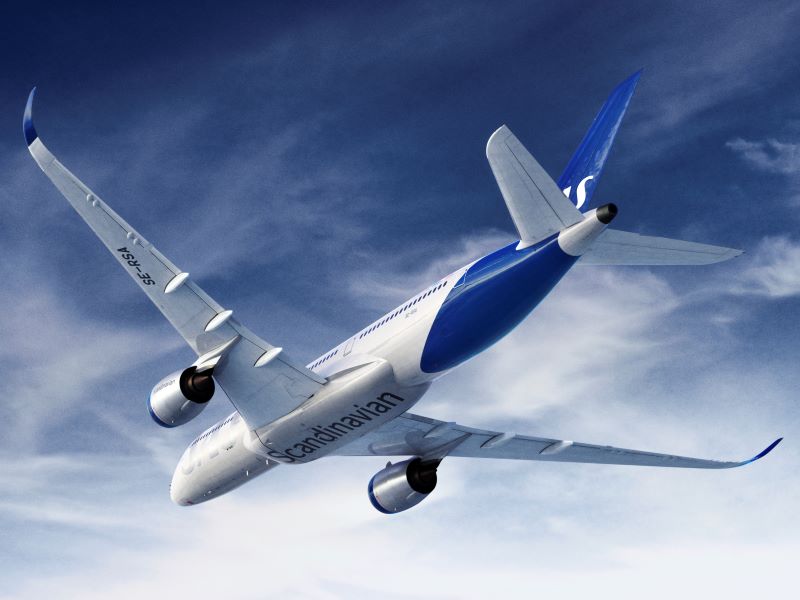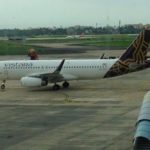
(TAN): Scandinavian Airlines (SAS) has introduced a range of measures aimed at meeting new demands in the work to prevent the spread of coronavirus. The safety of passengers and employees always comes first for SAS. Studies show that an extremely small number of infections can be traced to air travel, and SAS is working continuously to ensure this remains the case.
It has been made mandatory for all travellers from the age of 6 years to wear face masks from boarding to disembarkation on all flights. All aircraft are cleaned and disinfected in accordance with new procedures adapted to the extraordinary situation. New boarding procedures ensure that the best possible distance is maintained on board. Passengers with seats at the rear of the aircraft board first, to avoid having to pass other passengers.
All non-essential loose items have been removed – such as magazines in the seat pockets, pillows, blankets and trays and no food service will be available on board to reduce contact between passengers and crew. Hand luggage is limited to one item per passenger.
“The measures aimed to prevent the spread of coronavirus together with clean and dry air onboard makes flying a safe means of transportation. Many people in Scandinavia are completely dependent on SAS and air travel. They can rest assured we are taking all aspects concerning health and safety extremely seriously,” says VP Safety and Security Mattias Hedrén at SAS.
The airline is monitoring developments carefully and working closely with national and international authorities and experts to ensure the best possible transition from the corona crisis to a more normal situation.
[ALSO READ: Air New Zealand will resume flights to and from Taupo and Timaru from June 8]
SAS adjusts in response to developments, and it is expected that government rules and regulations for international aviation will be harmonised. In the meantime, SAS follows the industry standard, while also implementing own measures in accordance with local government rules and guidelines.
SAS recommends that all passengers familiarise themselves with the applicable travel advice and restrictions issued by the authorities. Many countries require protective face masks to be worn at airports and on public transport, so passengers should ensure they have enough face masks for their entire trip. Good hand hygiene is vital in preventing the spread of infection, so bring disinfectant hand sanitiser with you if possible. People who are ill or experiencing symptoms of infection cannot travel by air and will be denied boarding.




